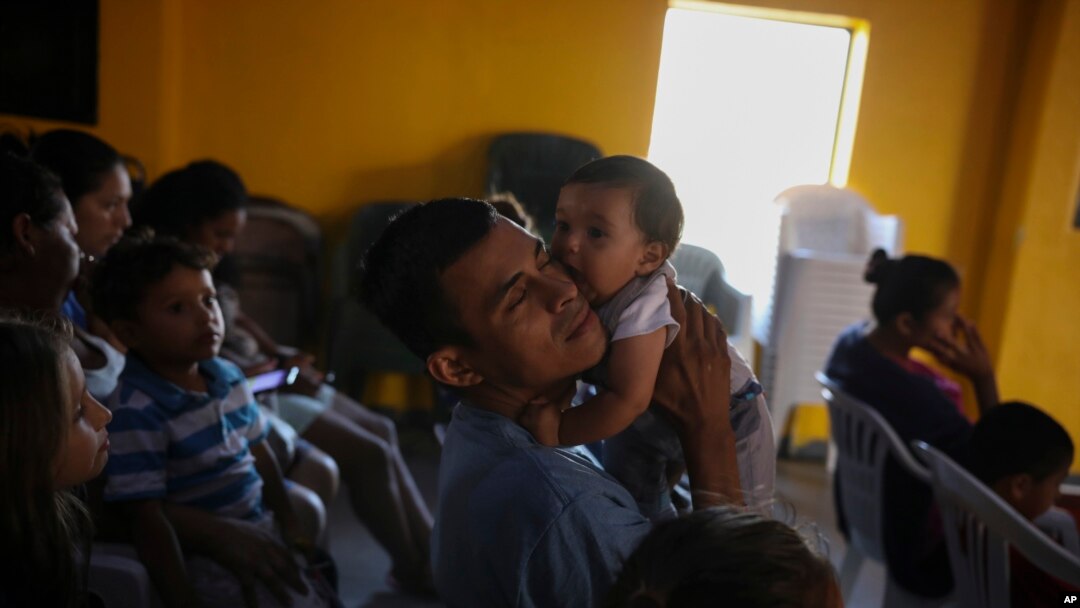Victoria Macchi contributed to this report
Shortly after the Supreme Court unblocked a White House policy curtailing migrants’ ability to seek asylum in the U.S., President Donald Trump basked in the moment.
“BIG United States Supreme Court WIN for the Border on Asylum!” the president tweeted late Wednesday.
“Some really big court wins on the border lately!” he tweeted Thursday.
While legal challenges continue to make their way through the nation’s 9th Circuit Court of Appeals — which includes the southern border states of California and Arizona — the Supreme Court ruled that, in the interim, the Trump administration could begin denying asylum claims to migrants at the country’s southern border who did not first seek protection in another country along their route. The policy would affect asylum-seekers at the border, who are largely from Central America, as well as an increasing number of migrants from outside the Western Hemisphere.
Supreme Court Justice Sonia Sotomayor, joined by Justice Ruth Bader Ginsburg, dissented from the order, declaring that the rule “seeks to upend longstanding practices regarding refugees who seek shelter from persecution.”
BuzzFeed News’ Hamed Aleaziz reported on Thursday that U.S. Citizenship and Immigration Services officers were issued guidance that the policy applies to all asylum seekers who reached the U.S.-Mexico border after July 16.
In August, VOA spoke with Cubans, Venezuelans, and African migrants who had crossed through several countries to arrive at the U.S.-Mexico border, many of them after that date. Some were forced to return to Mexico, pending a future immigration date, under a U.S. policy called the Migrant Protection Protocols (M.P.P.), also known as “Remain in Mexico.”
“In the administration’s mind, the whole idea is to just prevent individuals from arriving at the U.S.-Mexico border, and M.P.P. was sort of the initial first plank of this strategy,” said Cristobal Ramon, immigration project senior policy analyst at the Bipartisan Policy Center.
“This is now saying, you arrive at a port of entry or you arrive between ports of entry, but if you enter through a third country, you have to return there for processing,” Ramon told VOA.
Citing examples of kidnapping and extortion along the way, migrants at or near the U.S.-Mexico border have told VOA that countries they passed through to reach the United States were not safe for their families, were devoid of economic opportunity, or both.
Julia, an asylum-seeker from the Democratic Republic of the Congo whose last name VOA withheld for security reasons, detailed the horrific circumstances that led her to flee in the first place, but also recalled people targeting her family and other migrants as they walked through Central America.
Along the Darien Gap between Colombia and Panama, Julia said bandits would jump from trees to demand ransom.
“If you don’t give any money, they can kill you,” she added.
Victory or violation
Omar Jadwat, Director of the American Civil Liberties Union’s Immigrant Rights Project, said Wednesday’s ruling will have a “horrific” human toll.
Human rights organizations and some U.S. democratic lawmakers were also quick to blast the ruling.
“This is yet another attempt by the Trump administration to bar people, especially from Central America, from seeking protection in the United States from violence and persecution,” Refugees International's U.S. Senior Advocate Yael Schacher said.
“Blocking asylum seekers from entering the United States does not make us safer, violates our treaty obligations, tarnishes our image around the world, and endangers vulnerable people who are fleeing violence – especially children and families,” democratic Senator Dick Durbin wrote on Twitter.
Michelle Bachelet, the top U.N. human rights official, has repeatedly criticized the Trump administration’s changes to U.S. asylum policy.
In line with President Trump’s tweets, proponents of the asylum ban declared “victory.”
"This is a big victory for anyone who seeks an immigration policy in the best interests of our country,” said Dale L. Wilcox, executive director and general counsel of the Immigration Reform Law Institute, a public interest law firm that claims to “defend the rights and interests of the American people from the negative effects of mass migration.”
“For too long, those who do not meet the standard for asylum have exploited gaps in the system as a back-door into the U.S.,” Wilcox said.
“BORDER SECURITY VICTORY,” Republican Congressman Mo Brooks, from Alabama, declared on twitter. “BIG WIN FOR USA!”


